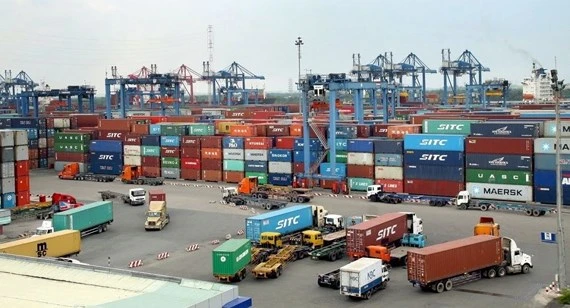
This is the highest commitment that a partner in free trade agreement has committed with us. It is significant and meaningful as EU is one of our two biggest export markets. The period to implement the commitment is quite short, about 5-10 years, but will help the exports of Vietnam to EU increase by 20% in 2020, 42.7% by 2025 and 44.37% by 2030.
Frankly speaking, if we google the word of EVFTA we will see a lot of articles about this topic, such as ‘highway to connect Vietnam with the world’, ‘motivation to a second transformation’, ‘best FTA ever signed by EU’, ‘new center of EU in ASEAN’, ‘opportunity to attract high quality investment capital from EU’, ‘attractive investment place’, or ‘opportunity to compete with other strong countries’.
Previously, when the Comprehensive and Progressive Agreement for Trans-Pacific Partnership (CPTPP) went effective on 14 Jan 2019, many articles talked about this topic, said the it will be a golden chance to export our strong products. However, until now many enterprises still do not understand it completely.
EVFTA looks like a challenging antagonistic game where Vietnam is the weaker player. EVFTA is considered the new and modern free trade agreement with the strictest requirements and highest commitments, hence, the tough challenges which it brings to Vietnam have been pointed out clearly.
Accordingly, the sectors of mechanics, retail, agriculture and seafood will face strong barriers as requirements on quality, safety and origin in this market are very high. Furthermore, the rising protectionism will make these requirements and standards much more complicated.
Currently, 96% of our enterprises are small and medium companies which have limited labor resources and management skills. Hence, extracting advantages from FTAs for these companies is not easy. Besides, to receive advantages from FTAs, enterprises have to meet the criteria of origin of products. This is the weakness of Vietnamese enterprises.
So, we are driving on the highway to EU with a worrisome reality that we may be fined. To export to EU, fishing activities are required to be legal, wood-made products also have to prove their origin, fruits need to be checked and tested of chemical residues and substances.
If we do not meet these requirements and standards, we may be fined any time. Previously, seafood products of Vietnam have been labeled with the yellow card due to illegal fishing activities.
In the past, we have passed many opportunities from WTO. The economic growth did not meet the expectations, and GDP of Vietnam in 2006-2020 grew 7%, in 2011-2015 grew 5.88%, much lower than the forecast. The increase in the added value from exports was very low. The exports were mainly based on unsustainable advantages, did not create the motivation to improve national competitiveness, or utilize opportunities from WTO.
What we had expected and did not get in WTO was much smaller than foreseen in the new and modern FTAs like CPTPP and EVFTA.




















